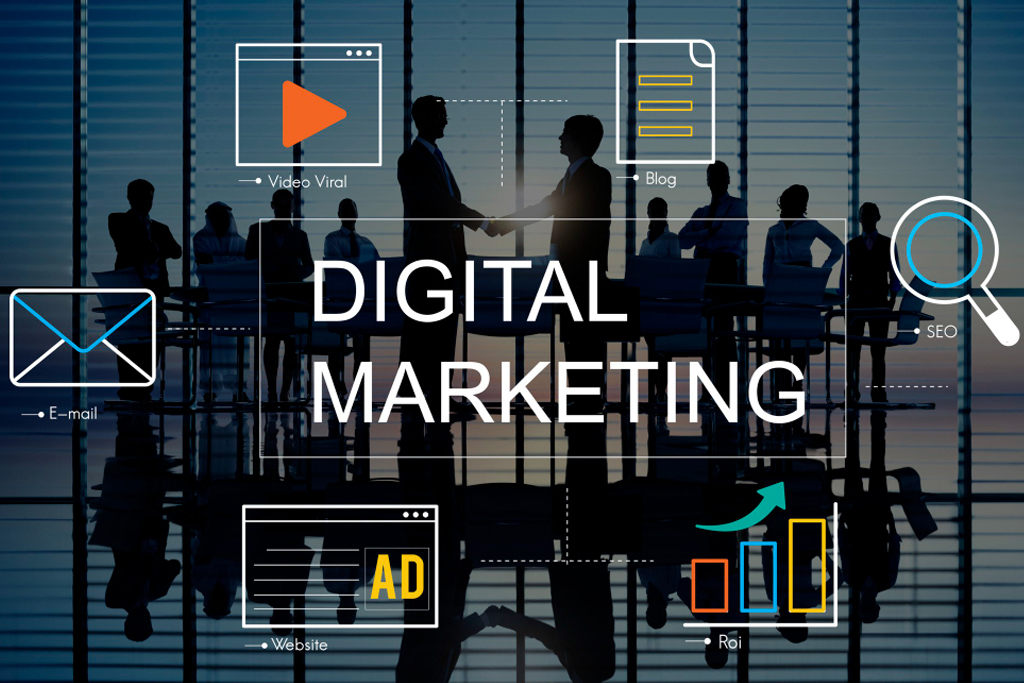
Business model evolution is crucial for businesses to adapt to changing market conditions and seize new opportunities. A business model defines how an organization creates, delivers, and captures value. It is essential for businesses to continuously evolve their models to stay agile, innovative, and responsive to customer needs. This evolution is significantly influenced by Digital Marketing Services, as they enable businesses to reach their target audiences more effectively and tailor their offerings to meet evolving consumer demands.
Drivers of Change
Building upon the introduction, the paper delves into the drivers of change that prompt businesses to evolve their models. This includes technological advancements, such as the internet, mobile computing, cloud computing, and artificial intelligence, which enable new ways of doing business and disrupt traditional industries. Digital marketing, particularly services provided by a Digital Marketing Agency, plays a pivotal role in these changes by enhancing online visibility and customer engagement. Shifts in consumer behavior, such as the rise of e-commerce, Social Media Marketing, digital media consumption, and on-demand services, reshape demand patterns and preferences. Additionally, regulatory changes, globalization, competitive pressures, and economic trends influence business model evolution.
Emerging Business Models
The paper explores emerging business models that are reshaping industries and creating new sources of value. This includes models such as subscription-based services, platform ecosystems, sharing economies, on-demand marketplaces, and outcome-based pricing. These models leverage technology, data, and networks to offer personalized experiences, access to resources, and innovative solutions to customers. For instance, Content Marketing and Email Marketing Services are vital for creating and distributing valuable content, building brand loyalty, and nurturing customer relationships.
Digital Transformation
The paper discusses the role of digital marketing in driving business model evolution. Organizations leverage digital technologies, such as cloud computing, data analytics, artificial intelligence, and the Internet of Things (IoT), to streamline operations, optimize efficiencies, and create new revenue streams. Local SEO Services are critical for businesses to improve their online visibility in local markets, attract nearby customers, and enhance their competitive edge. Digitalization enables businesses to pivot quickly, experiment with new ideas, and scale innovations at speed, ensuring they remain competitive and relevant.
Customer-Centricity and Personalization
The importance of customer-centricity and personalization in shaping business model evolution is emphasized. Businesses adopt customer-centric strategies, such as design thinking, customer journey mapping, and customer segmentation, to understand and anticipate customer needs. Digital Marketing Services, including targeted social media marketing and email marketing services, enable businesses to deliver personalized products, services, and experiences, enhancing customer engagement, loyalty, and satisfaction.
Agile and Lean Approaches
The paper explores agile and lean approaches to business model innovation. Organizations embrace agile methodologies, such as Lean Startup and Design Thinking, to iterate on ideas, validate assumptions, and experiment with new business models. Digital marketing agencies use rapid prototyping, minimum viable products (MVPs), and iterative development cycles to test hypotheses, gather feedback, and iterate based on market insights, driving continuous improvement and innovation.
Platformization and Ecosystem Strategies
The rise of platformization and ecosystem strategies in driving business model evolution is discussed. Businesses leverage platform business models, such as two-sided marketplaces and multi-sided platforms, to facilitate interactions between producers and consumers, create network effects, and capture value. Ecosystem strategies enable businesses to collaborate with partners, co-create value, and leverage complementary assets and capabilities, fostering innovation and growth.
Monetization and Revenue Models
Different monetization and revenue models that businesses adopt to capture value are examined. Models such as freemium, subscription, pay-per-use, advertising, licensing, and affiliate marketing are explored. Digital marketing services play a key role in these models by driving traffic, generating leads, and converting prospects into customers. Businesses experiment with pricing strategies, revenue streams, and value propositions to optimize profitability and sustain growth.
Sustainability and Social Impact
The importance of sustainability and social impact considerations in business model evolution is emphasized. Businesses integrate sustainability principles, such as environmental stewardship, social responsibility, and ethical sourcing, into their operations and value chains. Digital marketing can support these efforts by promoting sustainable products and practices, raising awareness about social issues, and engaging customers in meaningful ways.
Case Studies and Examples
Through case studies and examples, the paper showcases businesses that have successfully evolved their models to stay competitive and relevant in dynamic markets. These case studies may include examples from various industries, such as technology, retail, healthcare, and finance, illustrating how businesses have embraced digital transformation, customer-centricity, platformization, and sustainability to drive innovation and growth.
Challenges and Considerations
The challenges and considerations involved in business model evolution are examined. This includes issues such as organizational resistance to change, legacy systems and processes, talent gaps, and market uncertainty. Strategies for overcoming these challenges, such as fostering a culture of innovation, investing in digital capabilities, and building strategic partnerships, are explored.
Finally, the paper discusses future directions and emerging trends in business model evolution. This may include topics such as the impact of emerging technologies (such as blockchain, 5G, and quantum computing) on business models; the growing importance of data privacy, cyber security, and regulatory compliance; and the potential for new business models, such as circular economies and decentralized finance, to disrupt traditional industries.
Finally, the paper discusses future directions and emerging trends in web accessibility. This may include topics such as advancements in assistive technologies, the integration of accessibility into emerging technologies such as virtual reality and augmented reality, and the growing importance of inclusive design practices in the broader digital landscape. The discussion explores how these developments may shape the future of web accessibility and the digital experiences of individuals with disabilities.



